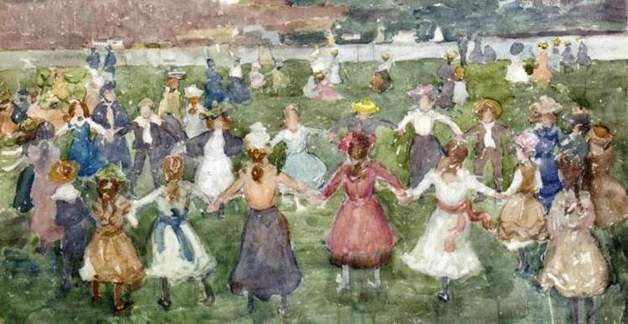Workers of the world, awaken!
Rise in all your splendid might
Take the wealth that you are making,
It belongs to you by right.
No one will for bread be crying
We’ll have freedom, love and health,
When the grand red flag is flying
In the Workers’ Commonwealth.
So goes the old International Workers of the World ballad. It was written by Joe Hill, a socialist songwriter in the early 20th century. Today is May 1st, and about 80 countries are officially celebrating May Day, also known as International Workers’ Day. Robber barons, the Haymarket Massacre, the Pinkerton Agency, and the grinding gears of industrialization litter the background of this holiday. Yet the massive social unrest and the supposedly inevitable uprising prophesied in the lyrics never came to fruition in the United States.
Perhaps Americans were so enamored with the abundance of consumer goods capitalism provided that we were blinded to the plight of the worker . Perhaps we came to love televisions, Pop-Tarts, LPs, Twinkies, and IPods so much that we forgot we were oppressed. Yet whether this story is told by 19th-century social activists or 21st-century Wall Street Occupiers, Americans have not been easily swayed by their activism so as to adopt a class-warfare mentality. Why have Americans been so resistant to this narrative?
While the 20th century seemed to teach us that market economies tend to provide goods people need more easily than socialist economies, there have been rough patches in the American experience. The Great Depression scarred a whole generation: “Waste not, want not.” Stuffing money under mattresses and reusing coffee grounds are habits which continued for decades imply from the memory of the 30s. The Great Recession of our own time has left its mark too: graduating in the spring of 2009 was like tripping on the way out the door of your parents’ house.
Yet Americans, strangely, are not easily discouraged or turned into class warriors on account of this history. It seems that we are bonded to one another by something other than our economic exchanges. Maybe Clinton and Carville were wrong and it’s not always “the economy, stupid.” Something else intervenes.
There is an older tradition also celebrated on May 1st. Its best depiction in verse comes from Robert Herrick’s “Corinna’s Going A-Maying.”
GET up, get up for shame, the blooming morn
Upon her wings presents the god unshorn.
See how Aurora throws her fair
Fresh-quilted colours through the air :
Get up, sweet slug-a-bed, and see
The dew bespangling herb and tree.
Each flower has wept and bow’d toward the east
Above an hour since : yet you not dress’d ;
Nay ! not so much as out of bed?
When all the birds have matins said
And sung their thankful hymns, ’tis sin,
Nay, profanation to keep in,
Whereas a thousand virgins on this day
Spring, sooner than the lark, to fetch in May.
. . .
There’s not a budding boy or girl this day
But is got up, and gone to bring in May.
A deal of youth, ere this, is come
Back, and with white-thorn laden home.
Some have despatch’d their cakes and cream
Before that we have left to dream
Perhaps some find the Labor Theory of Value to be great for sonnets, but I find these verses much more moving and a better depiction of the human condition. Men and women are doing what is most decidedly impractical and occasionally foolhardy—falling in love and planning a wedding celebration. “Cakes and cream” sound frivolous and grossly inefficient. Bread, water, and vegetables would be much cheaper and more nutritious. For those who pit leisure against the dignity of the worker’s labor, such festivity is an obstacle to progress.
Yet, I don’t think we ever fully bought into the exaltation of labor for labor’s sake. We realize that we weren’t created to labor for some purely earthly future. Who wants to be the ideal socialist worker on a beautiful spring day? One can imagine a conscientious socialist planner gazing out his window in the morning and seeing, not that “the Aurora throws her fair / Fresh-quilted colours through the air,” but that solar power will decrease the expenditure on energy by at least 30 percent over the next five years. The same man may walk through “a park / Made green and trimm’d with trees” and only see three plots of arable land likely to yield enough wheat to feed the district for six months.
For all its pathos, “Rising in splendid might” is less motivating than rising to see “the blooming morn / Upon her wings presents the god unshorn.” But the blooming morn and the wedding feast have always led to a truly humane happiness. As one philosopher notes, there is a difference between having a plan and knowing what people like. Joe Hill had a plan, and Robert Herrick knew what people liked. The latter understood that our human desire and real passion is not for a forthcoming economic paradise, but a present Divine Frivolity.
✠
Image: Maurice Prendergast, May Day







